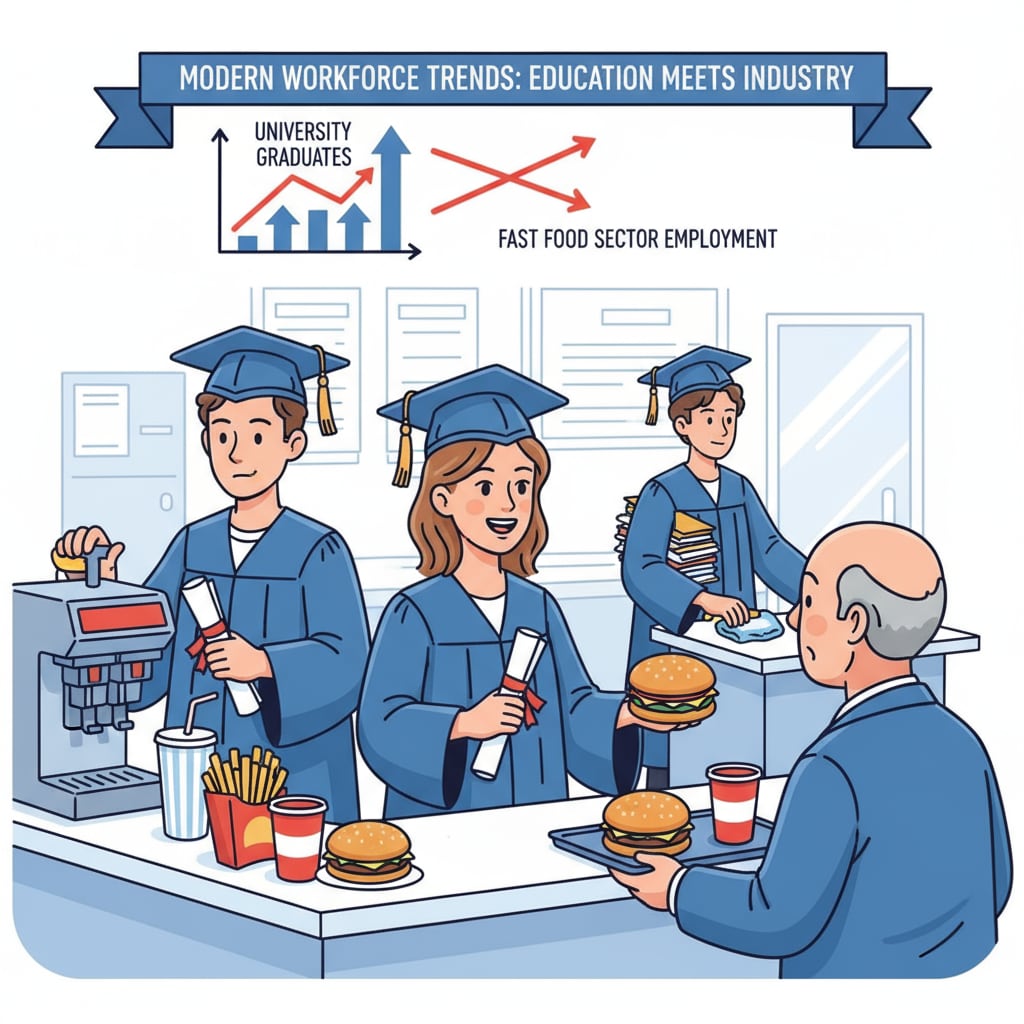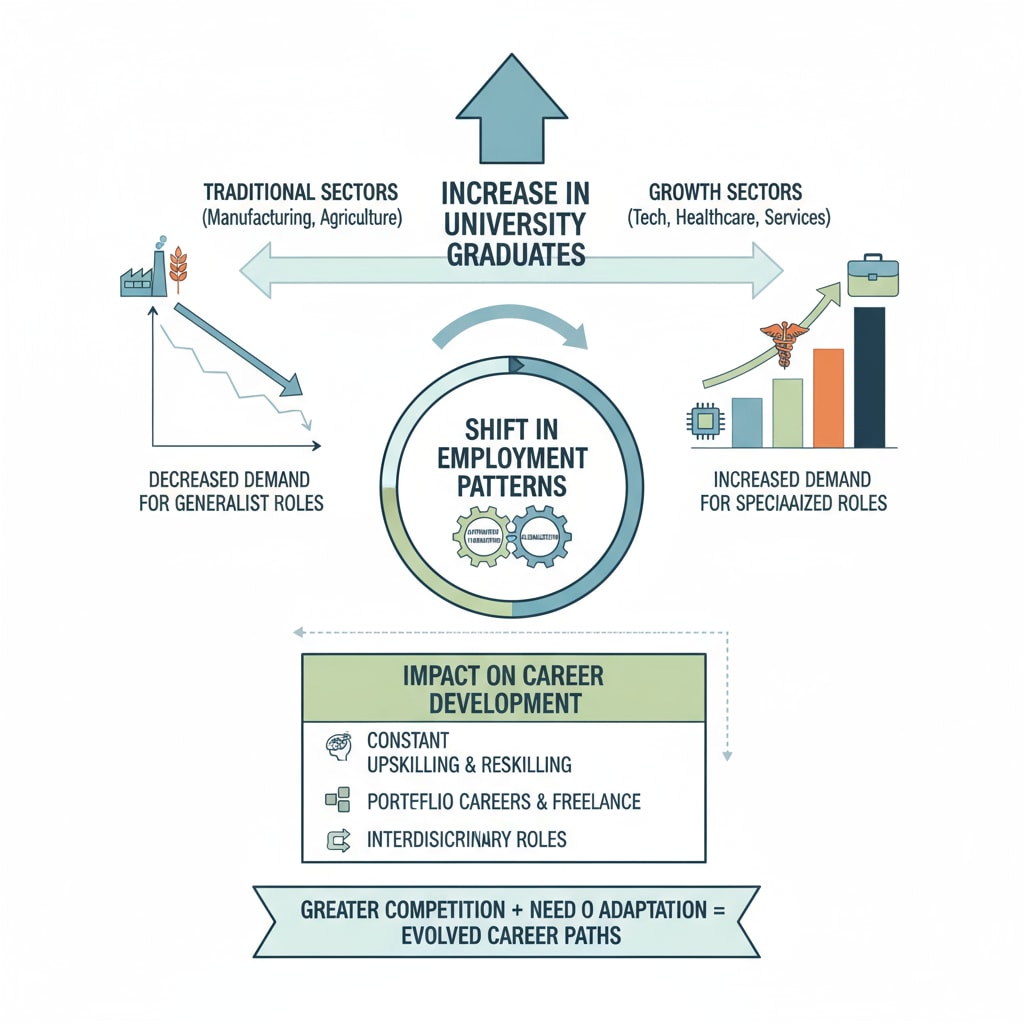University degrees, employment, and career development are intertwined aspects of our modern society. In recent times, an interesting yet concerning phenomenon has emerged: an increasing number of highly educated individuals, including those with advanced degrees, are entering the fast food industry. This trend has sparked a significant debate about the value of education investment and the future direction of K12 education.

The Surprising Influx of Highly Educated Workers in the Fast Food Sector
In the past, the fast food industry was often seen as a place for part – time workers, students, or those with minimal formal education. However, today, we are witnessing a shift. Many individuals with university degrees, and even master’s degrees, are taking up jobs in fast food joints. For example, a recent study by the Bureau of Labor Statistics shows a steady increase in the proportion of college – educated employees in the fast food industry over the last decade. This trend has left many wondering about the reasons behind this unexpected career choice and its implications for the traditional understanding of education and employment.
The Concept of Degree Inflation and Its Impact
The growing presence of highly educated people in the fast food industry can be linked to the concept of degree inflation. Degree inflation refers to the devaluation of academic degrees over time due to an oversupply of degree – holders in the job market. As more and more people obtain university degrees, the relative value of these degrees has decreased. Employers are now often flooded with applications from highly educated candidates, making it difficult for job – seekers to stand out. This has forced some individuals to accept jobs in sectors that were not traditionally associated with their level of education. According to the American Economic Association, degree inflation has been a contributing factor to the changing employment landscape in recent years.

This situation has significant implications for career development. Those with high – level degrees may find themselves in jobs that do not fully utilize their skills and knowledge, potentially limiting their long – term career growth. It also raises questions about the return on investment in education. If individuals are spending years and a large amount of money on obtaining a university degree, but end up in jobs that could be done with less education, is the investment truly worth it?
Rethinking K12 Education Goals
The phenomenon of highly educated people in the fast food industry also shines a light on the need to rethink K12 education goals. K12 education, which forms the foundation of a person’s educational journey, should be more focused on building practical skills and real – world competencies. Instead of solely emphasizing academic achievements and college admissions, K12 education should prepare students for a diverse range of career paths. This could include incorporating more vocational and technical training, as well as teaching soft skills such as communication, teamwork, and problem – solving. By doing so, students will be better equipped to enter the workforce and adapt to the changing job market, regardless of their future educational pursuits.
Readability guidance: The article has used short paragraphs to clearly present ideas. Each section has a distinct focus, and relevant external links have been provided for further information. The use of transition words like “however”, “for example”, and “also” helps to create a smooth flow. The images are placed strategically to enhance understanding of the key concepts related to university degrees, employment, and career development.


